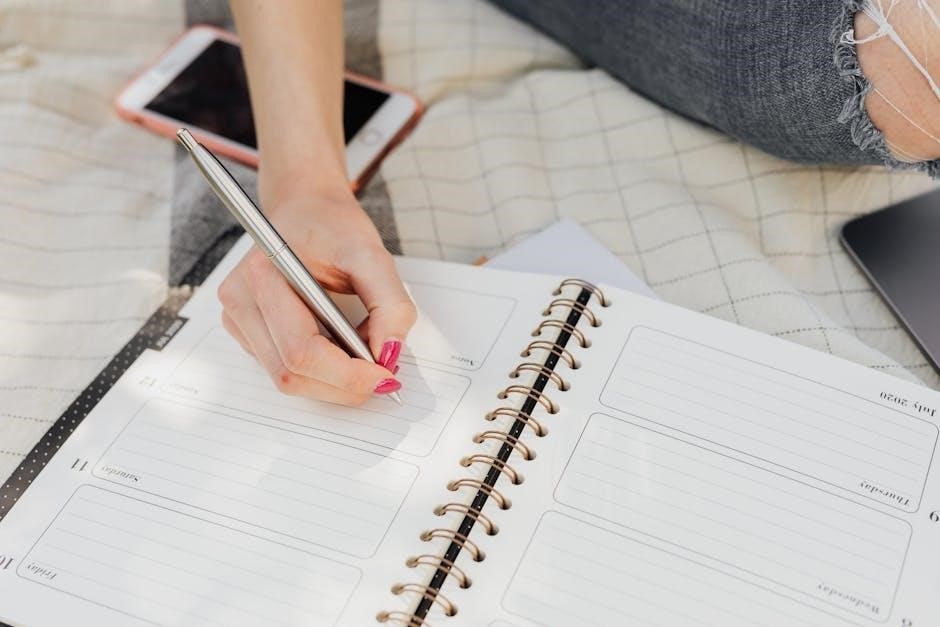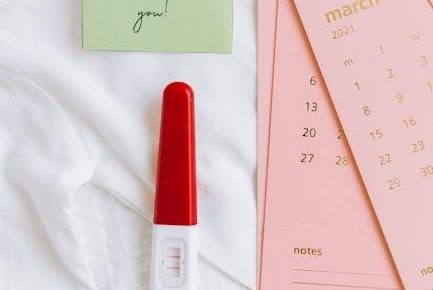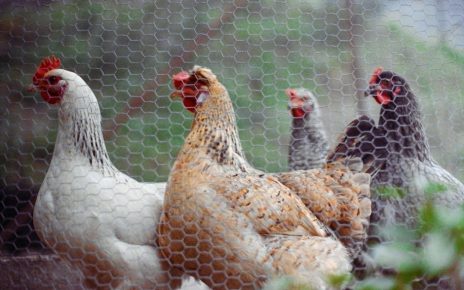An 8-week-old puppy schedule is essential for establishing routines, covering feeding, playtime, potty training, and sleep. It helps build great habits and prevents separation anxiety, ensuring a smooth transition for both puppy and owner.
Understanding the Importance of Routine for Puppies
A consistent routine is vital for an 8-week-old puppy, helping them feel secure and develop good habits. Routine aids in reducing anxiety, preventing overexertion, and ensuring proper feeding, play, and sleep schedules. It also helps with potty training and socialization, making the transition to family life smoother. By establishing a structured daily plan, owners can address separation anxiety and monitor their puppy’s health effectively. A well-planned schedule fosters a balanced and happy puppy, preparing them for future growth and training.
Key Components of an 8-Week-Old Puppy Schedule
An effective 8-week-old puppy schedule includes feeding times, potty breaks, play sessions, sleep routines, and training exercises. It also incorporates health checks, socialization, and crate training. Ensuring consistency in these areas helps puppies adapt to their new environments and prevents issues like separation anxiety. The schedule should be flexible to accommodate individual needs but structured enough to provide a sense of security. By balancing these components, owners can promote healthy development and lay a strong foundation for their puppy’s future growth and well-being.
Feeding Schedule for 8-Week-Old Puppies
A structured feeding schedule ensures proper nutrition, with 3-4 meals daily. High-quality, nutrient-rich puppy food supports growth and energy, while portion control prevents overfeeding.
Frequency of Feeding
At 8 weeks old, puppies require 3-4 meals daily due to their small stomachs and high energy needs. Feeding every 3-4 hours ensures consistent nutrition and prevents hunger-related stress. Divide their daily ration into equal portions to maintain balance and avoid overeating. As they grow, gradually reduce the frequency, but for now, stick to a strict schedule to support healthy development and metabolism. Monitoring their growth and adjusting portions as needed is crucial during this phase. Consistency in feeding times helps establish a routine, making potty training and overall care more manageable.
Best Food for 8-Week-Old Puppies
At 8 weeks old, puppies thrive on high-quality, nutrient-rich puppy food formulated for their life stage. Opt for a puppy-specific diet with essential proteins, vitamins, and minerals to support growth. Wet or dry food, or a mix, can be suitable, but ensure it’s tailored to their age and breed size. Avoid adult dog food, as it lacks the necessary nutrients for puppies. Consulting your veterinarian for recommendations ensures you choose the best option for your puppy’s health and development needs.
Portion Sizes and Feeding Times
Portion sizes for 8-week-old puppies are small and frequent, typically 3-4 meals daily. Feed 1/4 to 1/2 cup per 10 pounds of body weight per meal. Adjust based on breed, size, and activity level. Divide portions evenly across feeding times to prevent overeating. Maintain consistent feeding times, such as 7 AM, noon, 4 PM, and 7 PM, to establish a routine. Check food labels for puppy-specific feeding guidelines and adjust as your puppy grows. Consistency in feeding times aids potty training and overall schedule adherence.
Signs of Overfeeding or Underfeeding
Monitor for signs of overfeeding, such as rapid weight gain, lethargy, and loose stools. Underfeeding may show as thin appearance, dry coat, or excessive hunger. Adjust portions based on puppy’s growth and energy levels. Ensure proper feeding consistency to maintain health. Regular weigh-ins and vet checks can help identify imbalances. Watch for lethargy or fatigue, which may indicate overfeeding, and restlessness or constant searching for food, signaling underfeeding. Balance is key to support proper development and prevent health issues in your 8-week-old puppy.
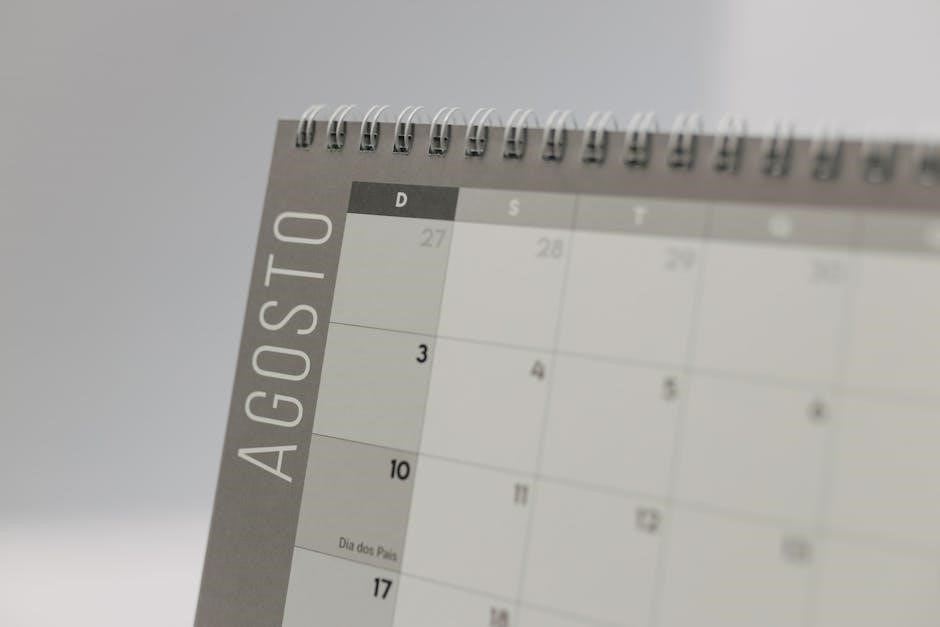
Potty Training Schedule
A consistent potty training schedule for an 8-week-old puppy involves frequent breaks, positive reinforcement, and monitoring for signs they need to go, ensuring successful toilet habits.
Creating a Potty Break Routine
Establishing a consistent potty break routine is crucial for house training. Take your puppy outside immediately after meals, naps, and playtime. Use a specific command like “go potty” to create association. Reward successful attempts with treats and praise to reinforce good behavior. If your puppy has an accident, calmly direct them to the designated area without punishment. Gradually increase the time between breaks as your puppy grows. Tailor the routine to your puppy’s unique needs and watch for signs like sniffing or circling, which indicate they need to go. Consistency is key to faster learning and fewer accidents.
Identifying Signs Your Puppy Needs to Go
Puppies often exhibit specific behaviors when they need to go potty, such as sniffing, circling, or squatting. They may also whine or pace. Watch for these cues and act quickly, as young puppies have limited bladder control. If you notice these signs, immediately take your puppy to the designated potty area. Consistency helps them learn faster. Ignoring these signals can lead to accidents, so stay attentive and proactive. Over time, you’ll become familiar with your puppy’s unique indicators, making training more efficient and effective.
Using Puppy Pads or Outdoor Training
Deciding between puppy pads and outdoor training depends on your lifestyle and environment. Puppy pads are ideal for small spaces or inclement weather, providing a convenient indoor option. Outdoor training is better for larger spaces and quicker learning, as puppies naturally go in grassy areas. Use a consistent command like “go potty” for clarity. Reward successful attempts with treats and praise to reinforce good behavior. Transitioning between methods can confuse puppies, so stick to one method initially. Cleanliness and supervision are key to successful training, regardless of the method chosen.
Common Mistakes in Potty Training
Common mistakes in potty training include punishing accidents, which can create anxiety, and inconsistent schedules, leading to confusion. Overlooking subtle cues, such as sniffing or circling, can delay success. Allowing unsupervised free roam before full training increases the risk of accidents. Rushing the process or expecting too much too soon is unrealistic, as young puppies have limited bladder control. To avoid these errors, stick to a consistent routine, reward good behavior, and remain patient with your puppy’s learning pace.
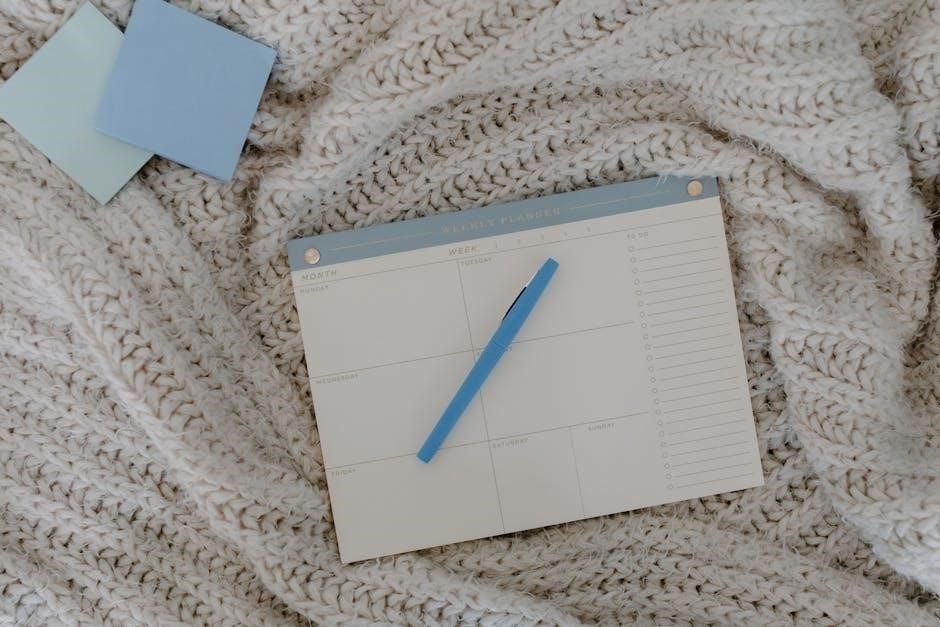
Playtime and Exercise
Playtime and exercise are crucial for 8-week-old puppies, promoting physical and mental growth. Short sessions of 10-15 minutes with appropriate toys are recommended. Watch for signs of overexertion, like panting or slowing down, and ensure adequate nap times to prevent overtiredness.
Recommended Duration of Playtime
At 8 weeks old, puppies require short, gentle play sessions of 10-15 minutes, 3-4 times daily. This prevents overexertion and allows for proper rest. Activities like light fetch, tug-of-war with soft toys, and interactive games are ideal. Puppies tire quickly, so monitoring for signs of fatigue, such as panting or slowing down, is crucial. Ensuring adequate breaks helps maintain energy levels and supports healthy development. Overexertion can lead to exhaustion, so balancing play with nap times is essential for their well-being.
Types of Appropriate Play for 8-Week-Old Puppies
At 8 weeks old, puppies benefit from gentle, short play sessions. Activities like light fetch with soft toys, tug-of-war, and interactive games are ideal. Introducing basic commands during play helps with early training. Sensory play, such as exploring textures, is also stimulating. Socialization through calm interactions with people and other pets is crucial. Avoid rough or prolonged play to prevent overexertion. These activities support physical and mental development while keeping your puppy engaged and happy.
Signs of Overexertion
Puppies at 8 weeks old may show signs of overexertion, such as excessive panting, droopy ears, or lethargy. They might stop responding to stimuli or lie down frequently. If your puppy appears overwhelmed or resists play, it’s time to pause. Overexertion can lead to fatigue or stress, so monitor their energy levels closely. Provide breaks and ensure they have time to rest. Recognizing these signs early helps maintain their physical and emotional well-being, ensuring playtime remains enjoyable and beneficial.
Importance of Nap Times
Nap times are crucial for 8-week-old puppies, as they support rapid growth and development. Puppies tire easily, and adequate rest prevents overexertion. Without enough sleep, they may become irritable or hyperactive. Naps also aid in brain development and emotional stability. A well-rested puppy is calmer and more receptive to training. Aim for frequent, short naps throughout the day to ensure they recharge. Proper nap schedules help maintain their overall well-being and set the foundation for a balanced, energetic, and happy puppy. Consistency in nap times fosters a routine that benefits both the puppy and the owner.
Sleep Schedule
An 8-week-old puppy sleeps 18-20 hours daily. A consistent sleep schedule and safe environment are crucial. This routine supports growth and development, ensuring your puppy thrives.
Average Hours of Sleep for 8-Week-Old Puppies
An 8-week-old puppy typically sleeps 18-20 hours daily. This includes both nighttime sleep and frequent naps throughout the day. Puppies need extensive rest to support rapid growth and development. Ensuring a consistent sleep schedule helps regulate their energy levels and behavior. Factors like age, size, and environment can influence sleep duration, but most puppies this young require plenty of rest to stay healthy and happy. Adequate sleep is crucial for their physical and mental well-being, so creating a calm and safe space for rest is essential.
Creating a Bedtime Routine
Establishing a consistent bedtime routine helps your puppy feel secure and prepares them for rest. A calming pre-sleep routine might include a gentle walk, playtime with soft toys, or a soothing massage. Ensure the last meal of the day is a couple of hours before bedtime to aid digestion. A final potty break before bed prevents accidents and helps your puppy learn to hold their bladder. Create a quiet, cozy space with familiar comforts like a blanket or toy to provide reassurance. Avoid energetic play or exciting activities in the evening to promote relaxation. Consistency reinforces good sleep habits, helping your puppy adjust to a structured daily schedule. A well-planned bedtime routine ensures your puppy gets the rest needed for healthy growth and development.
Setting Up a Safe Sleeping Environment
Creating a safe sleeping environment for your 8-week-old puppy is crucial for their comfort and security. Crate training is a great way to provide a cozy, contained space that prevents accidents and reduces anxiety. Line the crate with soft, washable bedding to ensure your puppy feels snug and protected. Place the crate in a quiet, draft-free area to promote uninterrupted sleep. Avoid leaving toys or loose items inside the crate to minimize choking hazards. Introduce a familiar comfort item, like a blanket with your scent, to provide reassurance. Ensure the room is dimly lit and at a comfortable temperature. A safe sleeping environment helps your puppy rest well, supporting healthy growth and development.
Managing Nighttime Waking
Managing nighttime waking for an 8-week-old puppy requires patience and consistency. Puppies often wake due to hunger, discomfort, or the need to potty. Keep nighttime interactions calm and brief, avoiding play or bright lights to prevent overstimulation. Use a crate with soft bedding to help your puppy feel secure. If your puppy cries, wait a few moments before responding to avoid reinforcing the behavior. Gradually extend the time between feedings and potty breaks to encourage longer stretches of sleep. Consistency and a predictable bedtime routine will help your puppy learn to sleep through the night.
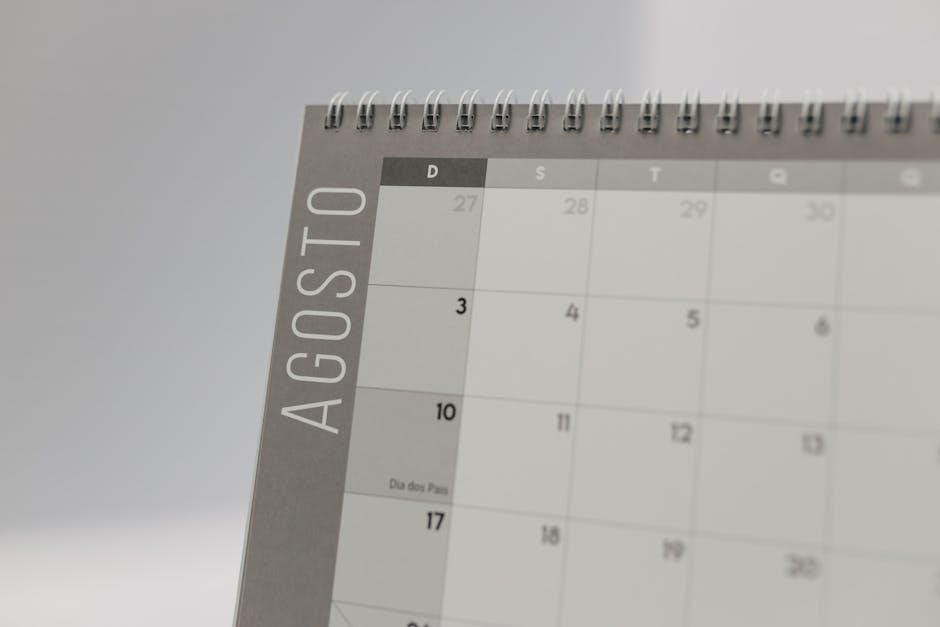
Training and Socialization
Training and socialization at 8 weeks focus on basic commands, crate introduction, and exposing puppies to new environments to build confidence and prevent separation anxiety.
Basic Commands to Start With
At 8 weeks old, puppies can begin learning simple commands like “sit,” “stay,” “come,” and “leave it.” These foundational commands help with behavior management and obedience. Use positive reinforcement, such as treats and praise, to encourage learning. Keep training sessions short and fun to maintain their attention. Consistency is key to helping them understand and respond to these commands effectively. This early training lays the groundwork for more complex skills as they grow and mature.
Crate training is a valuable tool for 8-week-old puppies, helping with potty training, reducing separation anxiety, and preventing destructive behavior. Introduce the crate gradually, starting with short periods and positive reinforcement, such as treats. Avoid using it as punishment. Ensure the crate is safe, well-ventilated, and free from hazards. Place comfortable bedding inside to make it a cozy space. This method helps puppies feel secure and aids in establishing boundaries and routines, making it easier to manage their schedule effectively.
Preventing Separation Anxiety
To prevent separation anxiety in your 8-week-old puppy, start by gradually increasing time apart. Begin with short periods, like 5 minutes, and reward calm behavior. Leave a familiar object, such as a blanket, to provide comfort. Consider using calming aids like pheromone diffusers or soothing music. Avoid dramatic goodbyes; instead, make departures low-key. Crate training can also help by giving your puppy a safe space. If working, use tools like Petcube to monitor and reassure your puppy remotely. Consistency and patience are key to building confidence and reducing anxiety.
Introducing New Environments
Introducing your 8-week-old puppy to new environments should be done gradually to avoid overwhelming them. Start with short, controlled exposures, using treats and praise to create positive associations. Familiarize your puppy with various textures, sounds, and sights to build confidence. Always supervise interactions to ensure safety and monitor your puppy’s reactions. If they show signs of stress, slow the process. Crate training can provide a sense of security during these introductions. This approach helps your puppy develop adaptability and reduces fear of new spaces or objects.
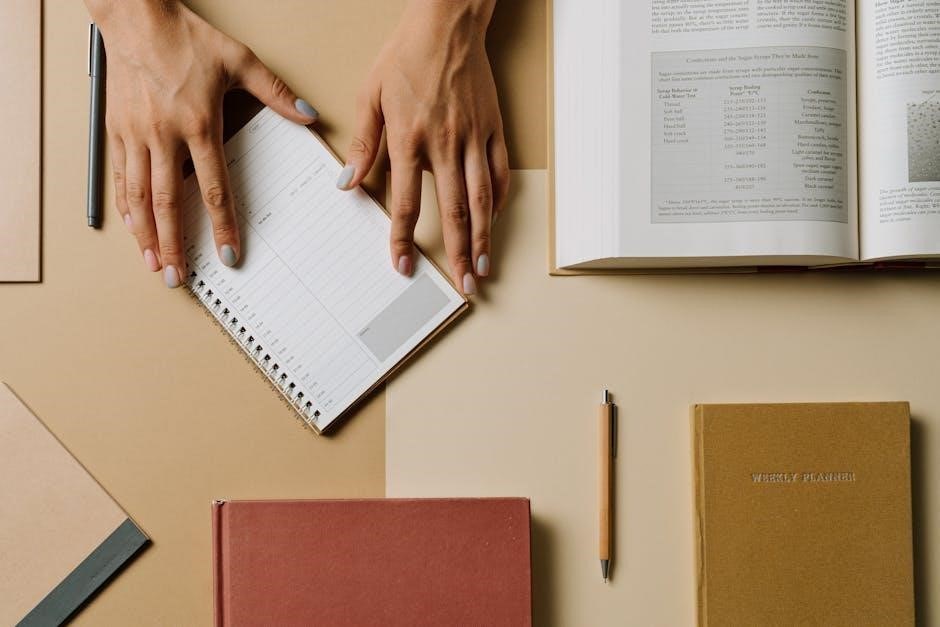
Health and Safety Checks
Daily health checks ensure your puppy’s well-being by monitoring for signs of illness or injury. Safety-proof your home to prevent accidents, and know when to contact a veterinarian.
Daily Health Checks for Puppies
Daily health checks for your 8-week-old puppy involve monitoring their behavior, appetite, and physical condition. Look for signs like bright eyes, shiny coat, and energetic behavior. Check for any discharge from the eyes or nose, and ensure their ears are clean. Inspect their paws and belly for any signs of redness or swelling. A healthy puppy should have a warm, dry nose and a clean bottom; Regular checks help catch potential issues early, ensuring your puppy stays healthy and thrives. Consistency is key to identifying any abnormalities promptly.
Monitoring for Signs of Illness
Monitoring your 8-week-old puppy for signs of illness is crucial for early detection. Look for vomiting, diarrhea, lethargy, or loss of appetite, as these can signal potential health issues. Check for changes in behavior, such as unusual whimpering or avoidance of play. Physical signs like pale gums, rapid breathing, or a warm, dry nose may indicate distress. If you notice any of these symptoms, consult your veterinarian promptly. Early intervention can prevent minor issues from becoming serious health problems and ensure your puppy’s well-being. Consistent observation is key to maintaining their health during this vulnerable stage.
Safety-Proofing Your Home
Safety-proofing your home is essential to protect your 8-week-old puppy from hazards. Secure toxic substances, electrical cords, and sharp objects out of reach. Install baby gates to block off dangerous areas like stairs or kitchens. Use protective covers on furniture and electrical outlets to prevent chewing damage. Remove choking hazards, such as small objects or loose items, from floors and surfaces. Ensure heavy furniture is stable to avoid tipping. Supervising your puppy at all times is key to preventing accidents and ensuring their safety in the home environment.
When to Contact a Veterinarian
Contact a veterinarian immediately if your puppy shows signs of illness, such as vomiting, diarrhea, lethargy, or refusal to eat. Monitor for injuries or unusual behaviors. If your puppy experiences breathing difficulties, seizures, or extreme lethargy, seek emergency care. Regular check-ups are crucial for vaccinations and growth monitoring. Consult your vet for advice on preventive care, behavioral concerns, or schedule adjustments to ensure your puppy’s health and well-being.
Consistency is key during the first 8 weeks. A well-structured schedule helps build great habits, prevents separation anxiety, and ensures your puppy’s healthy development. Stay prepared!
Final Tips for Managing an 8-Week-Old Puppy Schedule
Stay consistent with feeding, play, and sleep routines to help your puppy thrive. Use positive reinforcement during training and monitor their energy levels. Schedule regular breaks at work to check on your puppy, and consider tools like Petcube for remote monitoring. Adapt the schedule as needed based on your puppy’s growth and personality. Always prioritize nap times to prevent overexertion. With patience and dedication, you’ll set your puppy up for a happy, healthy life.
Preparing for the Next Stages of Puppy Development
As your puppy grows, gradually introduce more advanced training and socialization. Plan for increased exercise and playtime, while adapting routines to their developmental milestones. Monitor progress, such as vaccination schedules and teething, to ensure a smooth transition. Consistency in feeding, sleep, and potty training will remain crucial. Stay proactive in preventing separation anxiety by adjusting work schedules or using tools like Petcube. By setting a strong foundation now, you’ll prepare your puppy for a confident, well-adjusted future. Stay informed and adapt routines as needed to support their growth.
